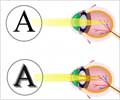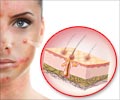How can we Diagnose Albinism?
Albinism can be diagnosed merely by observation of major or total absence of pigmentation of the skin, hair and eyes.
Other tests to diagnose albinism include -
Genetic Testing -
Genetic testing is the most accurate way to diagnose albinism and its specific type. This is helpful in families with albinism and is useful for specific, isolated populations who carry the trait in them.
Eye Examination -
An ophthalmologist should perform a complete examination of the eye of an affected individual. An electroretinogram test should be done to determine vision problems in albinism.
Chemical Testing of Hair -
Chemical testing of hair also provides an easy confirmation of the diagnosis of albinism.
- Hairbulb pigmentation test- It can be used to identify carriers. It is done by incubating a piece of the person's hair in a solution of tyrosine, an amino acid the body uses to make melanin. If the hair turns dark, it means the hair is making melanin. Light hair means there is no melanin synthesis.
- Tyrosinase test- It is more precise than the hairbulb pigmentation test. It measures the rate at which hair converts tyrosine into another chemical (DOPA), which is then made into pigment.
Blood Test -
Recently, a
Prenatal Diagnosis Of Albinism-
Amniocentesis and chorionic villus sampling can also diagnose some types of albinism in pregnancy.










